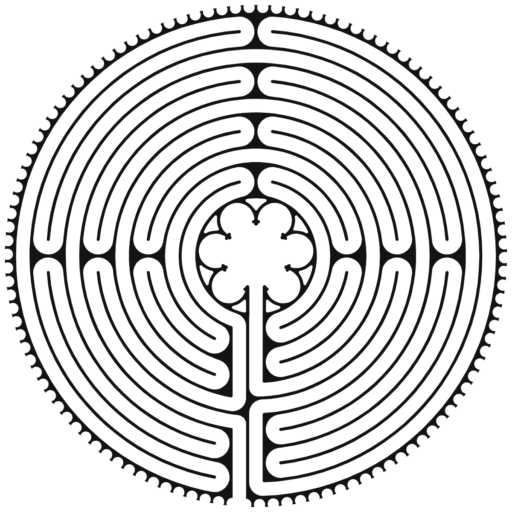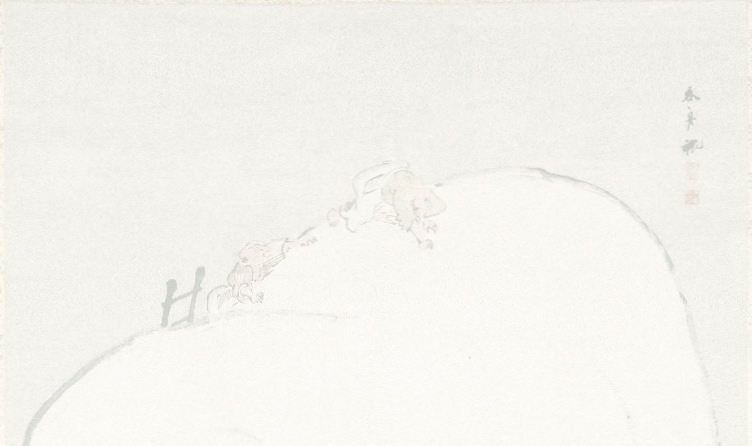Below is a list of readings that will serve as a resource in your current and future studies of STS. You do not have to read each and every article to participate productively in the Summer School, but a set of required readings, marked with a *, will provide a common base for our discussions. Additional recommended readings are marked with a +. Next you will find selected writings by the instructors that are particularly germane to the sessions they will be teaching. Finally, a short list of suggested topical readings can be used to gain further background for the Summer School sessions.
For legal reasons the STS Summer School cannot post copies of these readings online. However the links will allow access via your university credentials. If you have trouble accessing any of the readings please contact the Summer School organizers.
I Required Readings
A. General Readings
*S. Jasanoff. The Vanishing Square: Civic Learning in the Internet Age. The Hastings Center Report 51, S1 (2021): S5-S9.
*S. Jasanoff. Technologies of Humility: Citizen Participation in Governing Science. Minerva 41, 3 (2003): 223–244.
*S. Hilgartner, J. B. Hurlbut and S. Jasanoff. Was ‘science’ on the ballot? Science 371, 6532 (2021): 893-894.
*L. Winner. Do Artifacts Have Politics? In The Whale and the Reactor, pp. 19-39. Chicago: University of Chicago Press, 1986.
B. Panel-specific Readings
Monday, July 25
STS in the World I: STS in a Time of War
*J. D. Aronson. The Politics of Civilian Casualty Counts. In T. B. Seybolt, J. D. Aronson and B. Fischoff (eds.) Counting Civilian Casualties: An Introduction to Recording and Estimating Nonmilitary Deaths in Conflict, pp. 29-53. Oxford: Oxford University Press, 2013.
*A. Toprani, N. Murray, and M. Dennis. The Results of War Are Never Final? The RUSI Journal (2022): 1-12.
*A. Wellerstein. The nuclear dilemma: deterrence works, up to a point. Engelberg Ideas, 7 June 2022.
STS in the World II: Gene editing and bioethics
*A. Fung. Dobbs and democratic legitimacy. Harvard Kennedy School, 28 June, 2022.
*S. Jasanoff. Seize back the political discourse on life. Harvard Kennedy School, 28 June, 2022.
*J. Mansbridge. The struggle shifts. Harvard Kennedy School, 28 June, 2022.
*S. Jasanoff and J. B. Hurlbut. A global observatory for gene editing. Nature 555, 7697 (2018): 435-437.
+(Browse) Global Observatory webpage.
Tuesday, July 26
Roundtable: Pandemic Expertise and Its Problems
*S. Jasanoff and S. Hilgartner. A Stress Test for Politics: Insights from the Comparative Covid Response Project (CompCoRe) 2020. Verfblog, 11 May 2021.
+(Skim) S. Jasanoff, S. Hilgartner, J. B. Hurlbut, O. Özgöde, and M. Rayzberg. Comparative Covid Response: Crisis, Knowledge, Politics. Interim Report.
+C. Destombes. Pr. Jean-François Delfraissy: « Il faut sortir de cette crise avec une vision renouvelée de la démocratie sanitaire ». Journal du Sida, May 2020.
Public Engagement and Technologies of Trust
*S. Jasanoff and H. Simmet. No Funeral Bells: Public Reason in a ‘Post-Truth’ Age. Social Studies of Science 47, 5 (2017): 751-770.
*S. Parthasarathy. Breaking the Expertise Barrier: Understanding Activist Challenges to Science and Technology Policy Domains. Science & Public Policy 37, 5 (2010): 355-367.
+S. Shapin. Cordelia’s Love: Credibility and the Social Studies of Science. Perspectives on Science 3, 3 (1995): 255-275.
Trust and Distrust in the Digital Era
*J. Donovan and J. Nilsen. Cloaked Science: The Yan Reports. The Media Manipulation Casebook. 3 January, 2021.
*G. Vidan. Decentralization: The Rise of a Hazardous Spec. Just Money: Virtual Currencies and the State Roundtable, 12 June, 2020.
Governance of Platform Technologies (group exercise)
*E. Klein. This is a Weirder Moment Than You Think. New York Times, 19 June, 2022.
Wednesday, July 27
Geoengineering Case Study (Constituting Global Publics)
*D. Keith. Climate Risk. In A Case for Climate Engineering, Boston Review Books, pp. 23-40. Cambridge, MA: MIT Press, 2013.
+F. Bierman et al. Solar geoengineering: The case for an international non-use agreement. WIREs Climate Change, 17 January, 2022.
Roundtable: Law, Expertise, and Human Rights
*A. Ahmed. Introduction. In Feminism’s Medicine: Law, Science, and Social Movements in the AIDS Response, Cambridge: Cambridge University Press, forthcoming.
The Credibility of Economic Expertise
*J. Furman. Why Did Almost Nobody See Inflation Coming? Project Syndicate, 17 January, 2022.
*S. Eich, “Epilogue.” In The Currency of Politics: The Political Theory of Money from Aristotle to Keynes pp. 206-308, Princeton: Princeton University Press.
Part II Get to Know Your Instructors
M. Boenig-Liptsin. Aiming at the Good Life in the Datafied World: A co-productionist framework of ethics. Big Data and Society, forthcoming.
M. A. Dennis. “Historiography of Science: An American Perspective.” In J. Krige and D. Pestre (eds.) Science in the Twentieth Century, pp. 1-26. Amsterdam: Harwood Academic Publishers, 1997.
S. W. Evans, L. Matthias and R. Dagmar. Science, technology, security: Towards critical collaboration. Social Studies of Science 51, 2 (2020): 189-213.
U. Felt. Living a Real-world Experiment: Post-Fukushima Imaginaries and Spatial Practices of “Containing the Nuclear.” In I. van de Poel, L. Asveld and D. Mehos (eds.) Experimentation beyond the laboratory: new perspectives on technology in society, pp. 49-78. Farnham: Ashgate, 2018.
U. Felt. The temporal choreographies of participation. Thinking innovation and society from a time-sensitive perspective. In J. Chilvers and M. Kearnes (eds.) Remaking Participation: Science, Environment and Emergent Publics, pp. 178-198. London/New York: Routledge, 2016.
U. Felt. Keeping Technologies Out: Sociotechnical imaginaries and the formation of Austria’s technopolitical identity. In S. Jasanoff and S.-H. Kim (eds.) Dreamscapes of Modernity: Sociotechnical Imaginaries and the Fabrication of Power, pp. 103-125. Chicago: Chicago University Press, 2015.
J. Furman. Why Did (Almost) No One See the Inflation Coming? Intereconomics 57 (2022): 79-86.
S. Jasanoff. Humility in Pandemic Times. In Uncertainty: Boston Review (2022): 9-29.
S. Jasanoff. Controversy Studies. In G. Ritzer (ed.) Blackwell Encyclopedia of Sociology. London: Oxford University Press, 2019.
S. Jasanoff. Back from the Brink: Truth and Trust in the Public Sphere. Issues in Science and Technology 33, 4 (Summer 2017).
S. Jasanoff. Future Imperfect: Science, Technology, and the Imaginations of Modernity. In S. Jasanoff and S-H. Kim (eds.) Dreamscapes of Modernity: Sociotechnical Imaginaries and the Fabrication of Power, pp. 1-33. Chicago: Chicago University Press, 2015.
S. Jasanoff. Civic epistemology. In Designs on nature: Science and democracy in Europe and the United States, pp. 247-271. Princeton, NJ: Princeton University Press, 2005.
S. Jasanoff. The idiom of co-production. In S. Jasanoff (ed.) States of Knowledge: The Co-production of Science and the Social Order, pp. 1-45. New York: Routledge, 2004.
P.-B. Joly and A. Kaufmann. Lost in translation? The need for ‘upstream engagement’ with nanotechnology on trial. Science as Culture 17, 3 (2008): 225-247.
P. B. Joly. Governing Emerging Technologies – The need to think outside the (black) box. In S. Hilgartner, C. Miller and R. Hagendijk (eds.) Science and Democracy: Knowledge as Wealth and Power in the Biosciences and Beyond, Routledge, 2015.
M. K. Land and J. D. Aronson. “The Promise and Peril of Human Rights Technology.” In M. K. Land and J. D. Aronson (eds.) New Technologies for Human Rights Law and Practice, pp. 1-20. Cambridge: Cambridge University Press, 2018.
B. Laurent and B. Lafon. Quel contrat social pour l’appel à la science. In H. Dumez, B. Loveluck, and A. Mallard (eds.) Innover en temps de crise. Réactions et adaptations face à la crise du Covid 19. Paris, Presses des Mines, 2022.
M. G. Lawrence and S. Schäfer. Promises and perils of the Paris Agreement. Science 364, 6443 (2019): 829-830.
C. A. Miller, P. Romero-Lankao, A. D. Hudson, J. Eschrich, and R. Wylie. Imagined Cities. In J. Eschrich and C. Miller (eds.) Cities of Light: A Collection of Solar Futures, Tempe: Center for Science and the Imagination, 2021.
C. A. Miller, A. D. Hudson, M. Gabriele, and P. Romero-Lankao. Democracy and Justice in Solar-Powered Cities. In J. Eschrich and C. Miller (eds.) Cities of Light: A Collection of Solar Futures, Tempe: Center for Science and the Imagination, 2021.
S. Parthasarathy, How to Be an Epistemic Trespasser. Historical Studies in the Natural Sciences 52, 1 (2022): 140-142.
L. Specht, “Review: Christine Desan. Making Money. Coin, Currency, and the Coming of Capitalism.” I•Con 13 (2015): 766-776.
J. Stilgoe. Geoengineering. In N. Castree, M. Hulme and J. D. Proctor (eds.) Companion to Environmental Studies, Routledge, 2018.
J. Stilgoe. Why has geoengineering been legitimised by the IPCC. The Guardian, 27 September 2013.
Part III Further References
Climate Change
N. L. Kahn and S. J. Levien. SEAS Researchers Postpone Test Flight for Controversial Geoengineering Project To Block Sun. Harvard Crimson, 5 April, 2021.
P. McAdory. Did They Really Make It Rain Over Dubai? Does It Matter?” New York Times Magazine, 11 August, 2021.
S. Rayner et al. The Oxford Principles. Climatic Change 121, 3 (2013): 499–512.
D. Scott. Geoengineering and Environmental Ethics. Nature Education Knowledge 3, 10 (2010): 10.
M. Specter. The Climate Fixers. New Yorker, 14 May, 2012.
WATCH: Solar Geoengineering: Warnings from Scientists, Indigenous Peoples, Youth, and Climate Activists.
Covid-19
A. Mandavilli and R. C. Rabin. Pregnant Women Get Conflicting Advice on Covid-19 Vaccines. New York Times, 28 January, 2021.
Z. Or, C. Gandré, I. D. Zaleski and M. Steffen. France’s response to the Covid-19 pandemic: between a rock and a hard place. Health Economics, Policy and Law (2021): 1-13.
Digital Trust
L. Swartz. Theorizing the 2017 ICO Bubble as a Network Scam. New Media and Society, forthcoming.
Nuclear
B. Pelopidas. The birth of nuclear eternity. Oxford Handbooks Online (February 2021).


